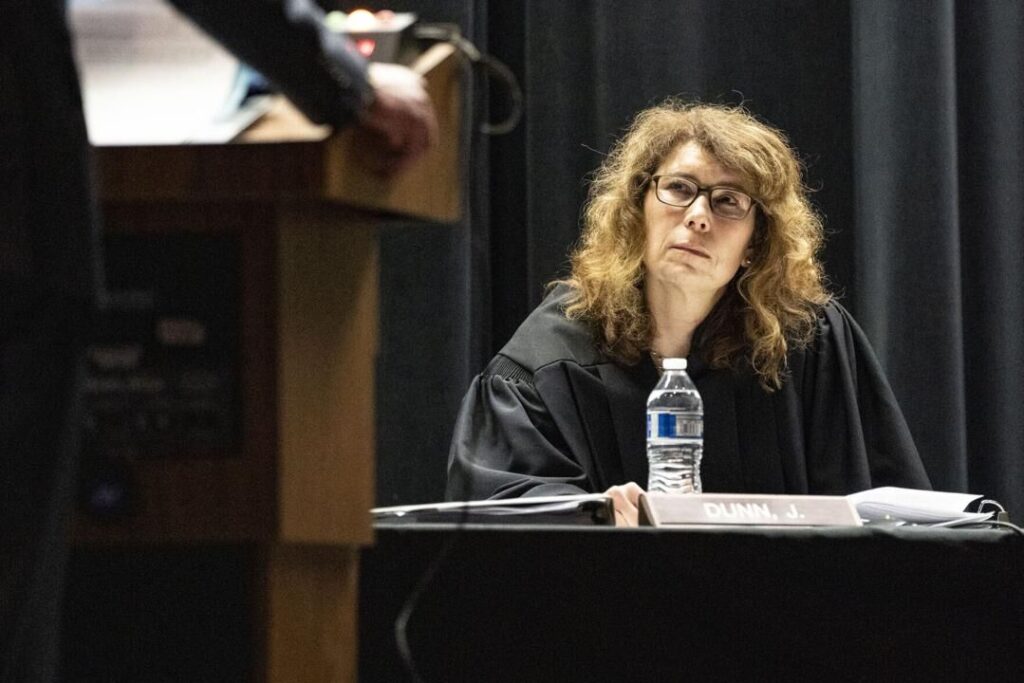Man settles with Mesa County’s top judge for $100,000 over wrongful arrests

A man who was wrongfully arrested seven times based on an outdated protection order has settled his lawsuit with the chief judge of Mesa County for $100,000.
Attorneys for Elson Foster indicated the Colorado Department of Corrections had also agreed to provide weekly reports to the judicial branch about inmates released from custody or who ended their probation, in an apparent attempt to reduce future arrests based on clerical errors.
“This was not discussed in the settlement, but again it is our understanding that this lawsuit instigated this change at the state level,” said James P. Roberts, who represented Foster.
The Judicial Department had no comment on the settlement.
The lawsuit, which Foster filed in August 2020, accused District Court Chief Judge Brian J. Flynn of knowing about people being arrested without probable cause based on expired protection orders, but failing to fix the problem.
Protection orders direct people to stay away from victims or witnesses, and may impose other conditions, such as a prohibition on alcohol or firearms. Court employees are responsible for manually entering details of protection orders into a computer system, which police rely upon to make arrests.
The public defender’s office had told Flynn about protection orders erroneously remaining in effect despite people completing their sentences early. District Attorney Daniel P. Rubinstein also confirmed to Colorado Politics that the chief judge learned of the issue, and that it was a judicial responsibility to clear protection orders that were no longer valid.
In Foster’s case, the court had not updated the protection order against him after he completed his parole in July 2018. Even though the protection order was no longer in force, police still arrested him multiple times beginning in August 2018 based on the outdated information.
Foster claimed in his lawsuit that arrests without probable cause amounted to a constitutional violation. Six months prior to the settlement, a federal judge agreed, condemning Flynn’s reported inaction in strong terms.
“In the Court’s view, the wrongfulness of Judge Flynn’s alleged actions is self-evident,” wrote U.S. Magistrate Judge S. Kato Crews. “Judge Flynn is not only a licensed attorney, but he is also a chief judicial officer in the Colorado court system. It should have been clear to any reasonable official, particularly a chief judge, that maintaining a policy which results in arrests lacking probable cause based on expired protective orders violates those individuals’ Fourth Amendment Due Process rights.”
The settlement agreement, which Colorado’s state court administrator signed on Dec. 29, did not admit any liability or wrongdoing by the government. At the same time, it awarded Foster $100,000.
Roberts said his client “is happy to have this lawsuit behind him and is proud that he stood up for his rights.”
Previously, the judicial and corrections departments amended an existing agreement in December 2020 to institute weekly reports of inmates released from prison, parole or community corrections. The Judicial Department could use those reports “for purposes of managing protection orders.”
Tristan Gorman, legislative policy coordinator with the Colorado Criminal Defense Bar, cautioned that a court employee would still need to manually clear protection orders, even with the regular reports from the corrections department. She also observed the new protocol does not seem to apply to county jails.
“The only thing I’d be concerned with is the right information getting to the right people in the right judicial districts,” Gorman said, adding that, as for Foster’s claims, “I certainly think that if state judicial is willing to settle for six figures, that means there was something there.”
In response to the settlement, U.S. District Court Judge Raymond P. Moore ordered Foster’s case closed on Jan. 14.
The Colorado Attorney General’s Office, representing Flynn, had maintained that the judge acted reasonably and in good faith.
The case is Foster v. Flynn.














